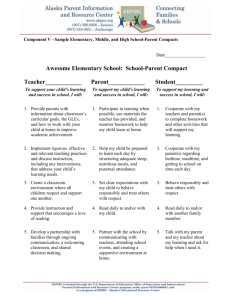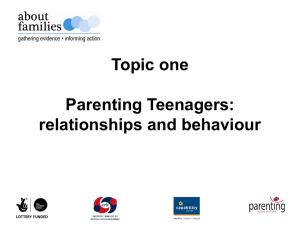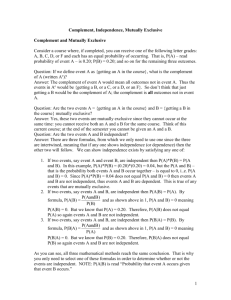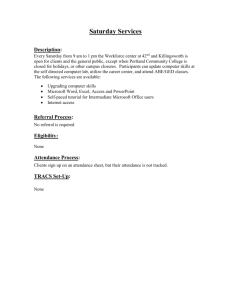How Can I Get My Teenager to School?
advertisement
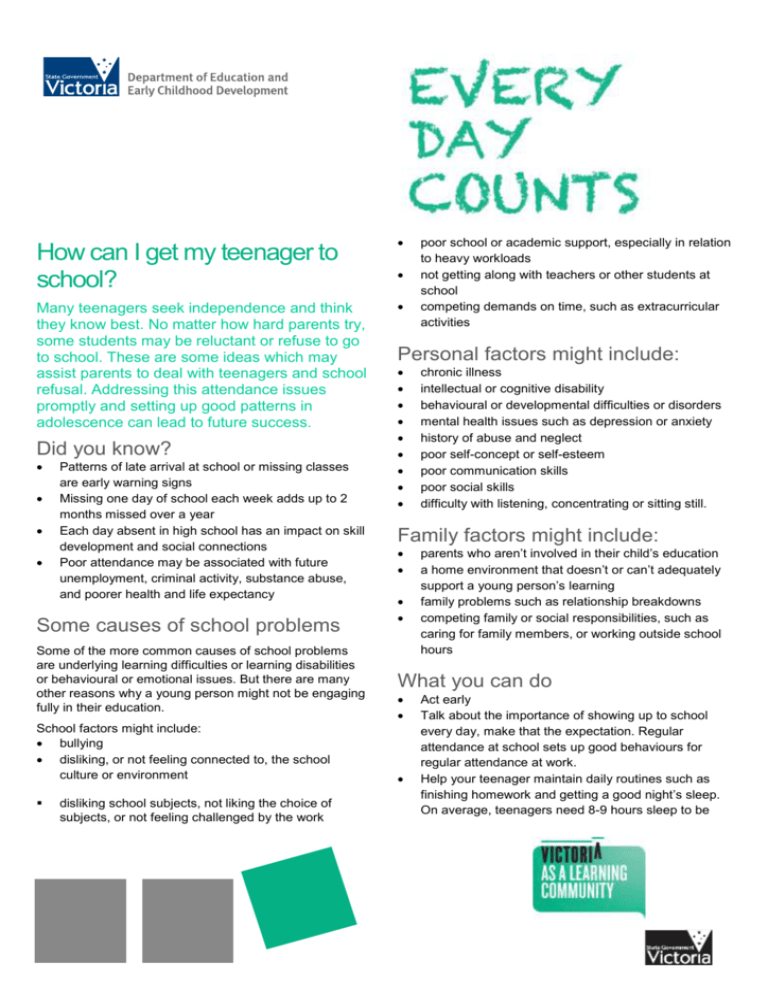
How can I get my teenager to school? Many teenagers seek independence and think they know best. No matter how hard parents try, some students may be reluctant or refuse to go to school. These are some ideas which may assist parents to deal with teenagers and school refusal. Addressing this attendance issues promptly and setting up good patterns in adolescence can lead to future success. Did you know? Patterns of late arrival at school or missing classes are early warning signs Missing one day of school each week adds up to 2 months missed over a year Each day absent in high school has an impact on skill development and social connections Poor attendance may be associated with future unemployment, criminal activity, substance abuse, and poorer health and life expectancy Some causes of school problems Some of the more common causes of school problems are underlying learning difficulties or learning disabilities or behavioural or emotional issues. But there are many other reasons why a young person might not be engaging fully in their education. School factors might include: bullying disliking, or not feeling connected to, the school culture or environment disliking school subjects, not liking the choice of subjects, or not feeling challenged by the work poor school or academic support, especially in relation to heavy workloads not getting along with teachers or other students at school competing demands on time, such as extracurricular activities Personal factors might include: chronic illness intellectual or cognitive disability behavioural or developmental difficulties or disorders mental health issues such as depression or anxiety history of abuse and neglect poor self-concept or self-esteem poor communication skills poor social skills difficulty with listening, concentrating or sitting still. Family factors might include: parents who aren’t involved in their child’s education a home environment that doesn’t or can’t adequately support a young person’s learning family problems such as relationship breakdowns competing family or social responsibilities, such as caring for family members, or working outside school hours What you can do Act early Talk about the importance of showing up to school every day, make that the expectation. Regular attendance at school sets up good behaviours for regular attendance at work. Help your teenager maintain daily routines such as finishing homework and getting a good night’s sleep. On average, teenagers need 8-9 hours sleep to be healthy and alert. You may also need to monitor their use of the Internet, mobile phone and TV at night to ensure they are not staying up too late or being disturbed while sleeping. Try not to schedule hair, dental or medical appointments during school hours. Arrange family holidays during scheduled school holidays so that they don’t miss out on classes and feel left behind. If it is necessary to be absent from school for an extended period, arrange with your school for a Student Absence Learning Plan. Don’t let your teenager stay home unless genuinely sick. Complaints of headaches or stomach aches may be signs of anxiety. If your teenager wants to stay home to finish an assignment, rather than letting them stay home, expect them to go to school – make attendance the number one priority. Later, you can discuss with them how they can improve their study habits or adjust their schedule. If your school has an assessment calendar on its website, use this to help your teenager plan their study so that they avoid working late the night before an assignment is due. Be sure to set a good example – how you meet your commitments impacts on how they will meet theirs. Talk to your teenager. What are their feelings about school? What interests them at school? Are there any difficult situations? It helps if you open these discussions in a relaxed way so that your teenager knows you are demonstrating concern, not authority. Try to be aware of your teenager’s social contacts. Peer influence can lead to skipping school, while students without many friends can feel isolated. Encourage meaningful extracurricular activities that your teenager enjoys, such as sports and clubs, to develop positive relationships and experience success outside of a classroom setting. These activities can help your child feel part of the group, important to the school, and more motivated. Set clear parameters around part-time work. Make sure that the hours your teenager is working do not impact on their ability to go to school the next day, or interfere with school assessment expectations or exam preparation Familiarise yourself with the school’s attendance policy. This can help when trying to reason with teenagers. Monitor your teenager’s attendance and school performance. Periodically check with their teachers to find out how things are going. If you find it difficult to contact several different teachers by phone, try email. Alternatively, the year level coordinator may be a helpful point of contact in relation to specific issues. Ask your teenager’s school about what types of flexible or blended learning options they offer. Remember You can talk with school staff (such as a teacher, year level coordinator, wellbeing staff, careers staff, assistant principal or principal) to find out what support they can provide to keep your teenager attending and engaged. USEFUL WEBSITES/CONTACTS www.raisingchildren.net.au www.headspace.org.au www.education.vic.gov.au www.youthbeyondblue.org.au www.kidshelp.com.au or phone 1800 55 1800, 24 hours a day, 7 days Parentline – phone 13 22 89 8.00am to midnight seven days a week


